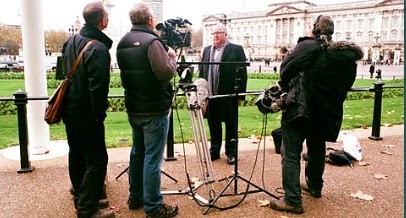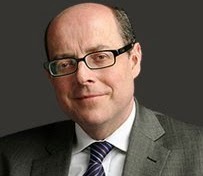Barrister David Sherborne, acting for eight phone-hacking victims, In the High Court: “The evidence demonstrates that voicemail interception, as well as the unlawful obtaining of personal information by blagging or use of private investigators, was in widespread and habitual use by a large number of journalists across all three MGN titles.”
Lyse Doucet in The Observer: "I’ve met journalists who love war, love the adrenaline rush. I don’t, and none of my closest colleagues would say they do either."
Lynne Anderson, deputy chief executive of he News Media Association: “The news media industry has long been keen to explore a more positive relationship with the BBC, one in which independent commercial newspaper companies would be appropriately credited, and rewarded, for sharing their local – and global – content with the BBC, while being able to access publicly-funded content from the BBC...The NMA would welcome a thorough review of the BBC’s role and remit which properly examines how the BBC could benefit from and support a successful independent commercial news media rather than seeking to provide the universal solution for a market failure which doesn’t exist.”
Brian Williams, father of the Guardian and Observer NUJ chapel, after Kath Viner topped the staff poll for a new editor to succeed Alan Rusbridger: “The journalists have had their say, now the ball is in the Scott Trust’s court. However, we are confident they will recognise the importance of the editorial staff’s opinion and give full weight to our choice.”
Andrew Billen in The Times [£] reviewing BBC 2's Reinventing the Royals: "Kevin Sim’s Diana: Her Story, Her Words was in the final stages of editing when Queengate happened. It was first postponed and then scrapped, thus depriving us of taped interviews with Diana conducted by her voice coach...The BBC says it was never finished. It could be transmitted tomorrow, insists Sim. I would say the BBC has an obligation to either slam it up on iPlayer now or release it to another public service broadcaster.
The Grey Cardigan on The Spin Alley: "I want to believe what I read in my local paper; I want it to have authority. It’s a bit difficult to be taken seriously when your investigation into council wrongdoing sits between a gallery of pictures of kittens that look like Hitler and a list of Britain’s 37 top dogging spots. And don’t think for one minute that someone might see sense and call a halt to this madness. Local World has just announced that it is recruiting for a national digital team based in Kensington to produce “must-read, highly shareable content” for the group’s existing websites and future new product launches. I can hardly wait."
Brendan O'Neill, editor of Spiked: "For a few months now, Hacked Off, the self-elected moral arbiters of the British press, have been posing as the one and true defenders of press freedom. It’s a bit like Shane MacGowan making a stab to become the next chief exec of Alcoholics Anonymous. That this gang which instigated Leveson and breathed life back into the 300-year-old corpse of state regulation of the press can claim to care about press freedom confirms that what they lack in basic understanding of liberty they more than make up for with brass neck."
Adam Goldman of the Washington Post, quoted by the Daily Telegraph: "Mr Goldman said he was 'shocked' that Emwazi's identity stayed secret as long as it did and that the news was not first broken by a British media outlet. He took a gentle dig at the BBC, which has tried to claim that it was the first to reveal Jihadi John's true identity in a story that was published before the Washington Post but little detail beyond the name. 'I think they learned it from us. What did they have? They had the name, we had the full story,' he said."
[£]=paywall























